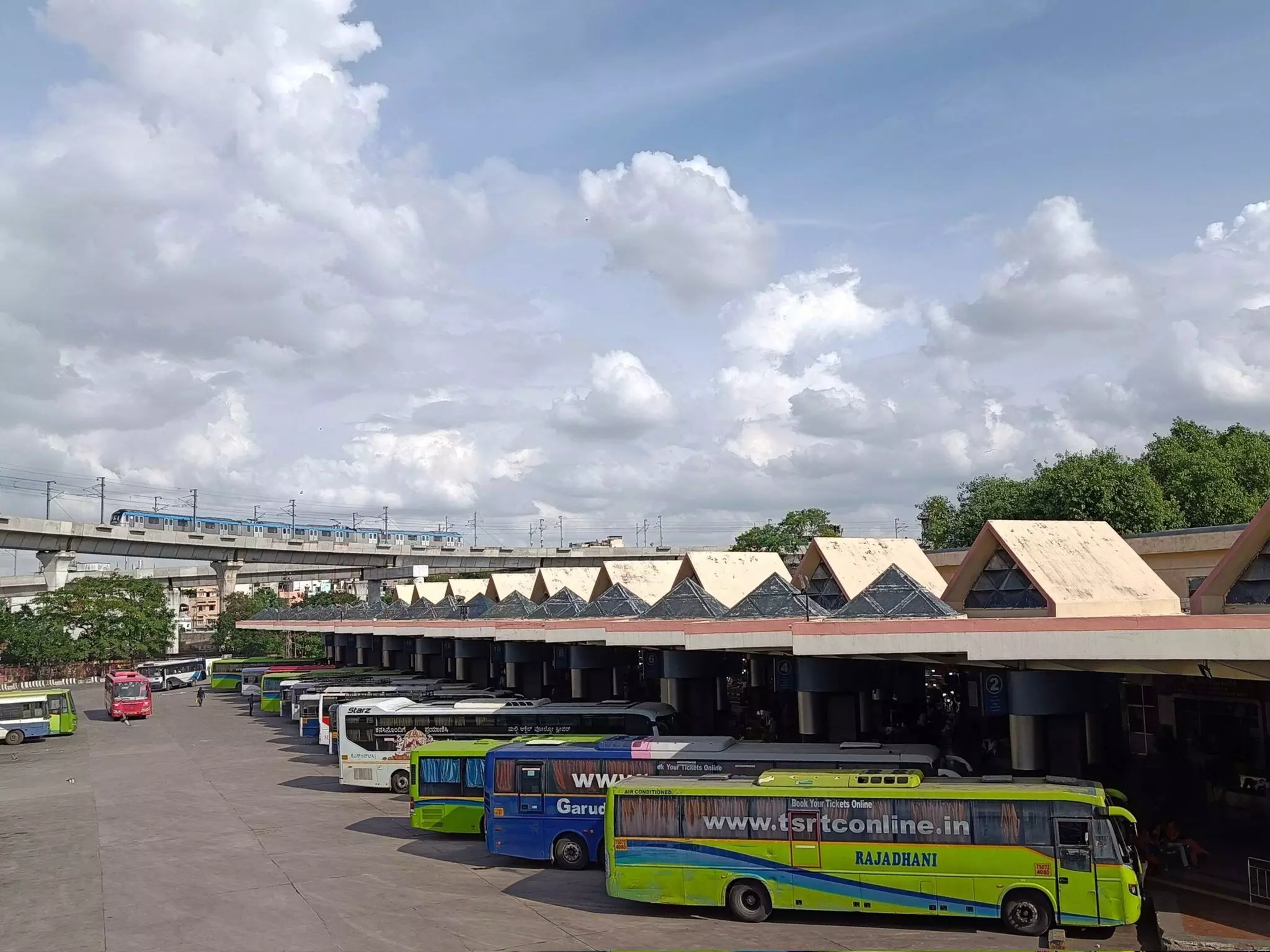2022 a good year for TSRTC as it clocks Rs 5,879 crs in revenue; losses down to Rs 650 crs
In 2022, 68% of the TSRTC buses (6,168) served rural passengers, while urban passengers were served by 32% of the buses (2,938). TSRTC employs 44,648 people across multiple cadres.
By Amrutha Kosuru Published on 27 Dec 2022 12:15 PM GMT
Hyderabad: According to the Telangana State Road Transport Corporation's (TSRTC) annual report 2022, losses have decreased while revenues appear to have increased. During the fiscal year (April to November), the losses were Rs. 421.08 crores, lower than in 2021 when it was Rs. 1,610.71 crores. Meanwhile, TSRTC earned Rs. 5,879.25 crores in gross revenue and Rs. 4,641.30 crores in traffic revenue in 2022.
TSRTC operates in 11 regions and has 99 depots, 364 bus terminals, and a fleet of 9,106 vehicles (RTC 6,475 and hire 2,631).
To reduce underutilisation of resources, TSRTC changed 74 Volvo metro luxury buses into Rajdhani buses and 45 metro deluxe buses into district deluxe buses. In addition, it purchased 630 super luxury and 130 deluxe buses to replace the ageing ones.
In 2022, 68% of the TSRTC buses (6,168) served rural passengers, while urban passengers were served by 32% of the buses (2,938). TSRTC employs 44,648 people across multiple cadres.
Metro student combi ticket rate was decreased from Rs. 20 to Rs. 10 with effect from 25 November, allowing students to ride in metro express buses with ordinary bus passes and avoid the rush in buses during peak hours. The daily sale of combination tickets climbed by 10,000.
According to TSRTC's annual report, the number of bus pass holders increased by 2.09 lakh from 7.57 lakh in 2021 to 9.66 lakh in 2022 due to improved connectivity.
Furthermore, bus on contract reservations (BOC) climbed by 1,171 per month and Rs. 2.48 crores per month in 2022 versus 2021. Also, 35,209 BOC reservations were made in 2022.
TSRTC also introduced water-based, bio-degradable degreasing chemicals instead of diesel for cleaning parts at depots and workshops, saving Rs. 50 lakhs per year.
Automatic washing plants are being built at all depots to improve maintenance and minimise labour costs.
To safeguard the safety of the passengers, TSRTC engaged 94 safety wardens to instruct drivers on safe driving and prevent accidents.
Plans for the future
TSRTC proposes that 3,360 electric buses will be integrated into the company by the end of 2025 as a replacement for diesel buses.
It also announced that smart cards will be used to issue bus passes, purchase tickets, and make other payments from 2023.
TSRTC commercial app will also be launched soon to accept digital payments for bus station stalls, fuel outlets, and advertisement revenue.
A WhatsApp group called "Extra Mile" has been formed to recognise crew members who have gone above and beyond their call of duty in assisting passengers in locating lost baggage and valuables, as well as assisting those in distress and in need of immediate assistance, such as those injured in accidents or suffering from sudden illness.
Cover Photo credits: Ratna Chaitanya
